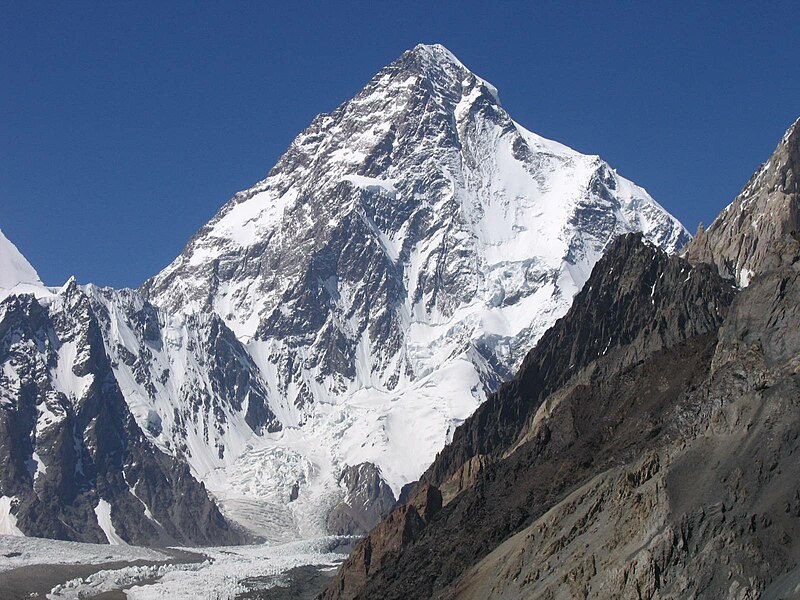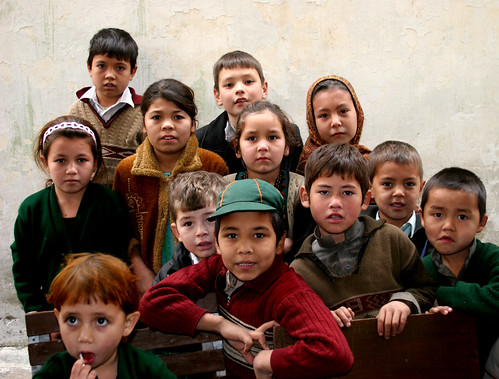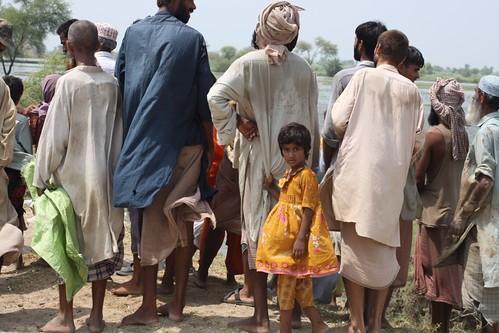Difference between revisions of "Adopting from Pakistan"
(→Who Can Adopt) |
(→Who Can Be Adopted) |
||
| (15 intermediate revisions by 2 users not shown) | |||
| Line 1: | Line 1: | ||
| − | {{#eimage:https://www.cia.gov/library/publications/the-world-factbook/graphics/flags/large/pk-lgflag.gif|410x579px|thumb|'''The official flag | + | {{#eimage:https://www.cia.gov/library/publications/the-world-factbook/graphics/flags/large/pk-lgflag.gif|410x579px|thumb|'''The official flag.'''<BR/>Source: cia.gov.}} |
| − | {{#eimage:https://www.cia.gov/library/publications/the-world-factbook/graphics/maps/pk-map.gif|410x579px|thumb|'''Map | + | {{#eimage:https://www.cia.gov/library/publications/the-world-factbook/graphics/maps/pk-map.gif|410x579px|thumb|'''Map.'''<BR/>Source: cia.gov.}} |
| − | {{#eimage:https://www.cia.gov/library/publications/the-world-factbook/graphics/locator/sas/pk_large_locator.gif|410x579px|thumb|'''Map | + | {{#eimage:https://www.cia.gov/library/publications/the-world-factbook/graphics/locator/sas/pk_large_locator.gif|410x579px|thumb|'''Map.'''<BR/>Source: cia.gov.}} |
| − | {{#eimage:http://upload.wikimedia.org/wikipedia/commons/thumb/e/ef/State_emblem_of_Pakistan.svg/522px-State_emblem_of_Pakistan.svg.png|410x579px|thumb|''' | + | {{#eimage:http://upload.wikimedia.org/wikipedia/commons/thumb/e/ef/State_emblem_of_Pakistan.svg/522px-State_emblem_of_Pakistan.svg.png|410x579px|thumb|''''''<BR/>Source: .}} |
| − | {{#eimage:http://upload.wikimedia.org/wikipedia/commons/thumb/0/09/Thar_Khuri.jpg/800px-Thar_Khuri.jpg|410x579px|thumb|'''The Thar Desert | + | {{#eimage:http://upload.wikimedia.org/wikipedia/commons/thumb/0/09/Thar_Khuri.jpg/800px-Thar_Khuri.jpg|410x579px|thumb|'''The Thar Desert.'''<BR/>Source: Wikipedia.org.}} |
{{#eimage:http://upload.wikimedia.org/wikipedia/commons/thumb/1/12/K2_2006b.jpg/800px-K2_2006b.jpg|410x579px|thumb|'''K2, the second highest mountain on earth.'''<BR/>Source: Wikipedia.org.}} | {{#eimage:http://upload.wikimedia.org/wikipedia/commons/thumb/1/12/K2_2006b.jpg/800px-K2_2006b.jpg|410x579px|thumb|'''K2, the second highest mountain on earth.'''<BR/>Source: Wikipedia.org.}} | ||
| − | {{#eimage:https://farm8.staticflickr.com/7169/6466282553_eee05a396b.jpg|410x579px|thumb|''' | + | {{#eimage:https://farm8.staticflickr.com/7169/6466282553_eee05a396b.jpg|410x579px|thumb|''''''<BR/>Source: flickr.com.}} |
| − | {{#eimage:http://upload.wikimedia.org/wikipedia/commons/thumb/f/fd/FaizMahal.jpg/800px-FaizMahal.jpg|410x579px|thumb|'''Faiz Mahal Palace, Khairpur | + | {{#eimage:http://upload.wikimedia.org/wikipedia/commons/thumb/f/fd/FaizMahal.jpg/800px-FaizMahal.jpg|410x579px|thumb|'''Faiz Mahal Palace, Khairpur.'''<BR/>Source: Wikipedia.org.}} |
| − | {{#eimage:http://upload.wikimedia.org/wikipedia/commons/thumb/3/37/Faisalmoschee.jpg/800px-Faisalmoschee.jpg|410x579px|thumb|'''The | + | {{#eimage:http://upload.wikimedia.org/wikipedia/commons/thumb/3/37/Faisalmoschee.jpg/800px-Faisalmoschee.jpg|410x579px|thumb|'''The Faisal Mosque, built in 1986.'''<BR/>Source: Wikipedia.org.}} |
| − | {{#eimage:https://farm5.staticflickr.com/4105/4967471537_7e8b723eee.jpg|410x579px|thumb|''' | + | {{#eimage:https://farm5.staticflickr.com/4105/4967471537_7e8b723eee.jpg|410x579px|thumb|''''''<BR/>Source: flickr.com.}} |
| + | {{#eimage:http://upload.wikimedia.org/wikipedia/commons/thumb/e/e2/Karachi_Montage_02.PNG/406px-Karachi_Montage_02.PNG|410x579px|thumb|'''Collage of Karachi.'''<BR/>Source: Wikipedia.org.}} | ||
| − | |||
| + | '''Notice: As of July 14, 2014, all individuals and agencies facilitating [[international]] adoptions must be in compliance with the Intercountry [[Universal Accreditation Act]].''' | ||
| − | + | The information contained on this website is for educational purposes only and is not intended to be a substitute for professional legal advice. Always seek the advice of a licensed and qualified professional. While the content of this website is frequently updated, information changes rapidly and therefore, some information may be out of date, and/or contain inaccuracies, omissions or typographical errors. | |
| − | Pakistan | + | =About Pakistan= |
| + | The Indus Valley civilization, one of the oldest in the world and dating back at least 5,000 years, spread over much of what is presently [[Pakistan]]. During the second millennium B.C., remnants of this culture fused with the migrating Indo-Aryan peoples. The area underwent successive invasions in subsequent centuries from the Persians, Greeks, Scythians, Arabs (who brought Islam), Afghans, and Turks. To learn more please read [[About Pakistan]]. | ||
| − | |||
| + | =Hague Convention Information= | ||
| − | + | [[Pakistan]] is not party to the Hague Convention on Protection of Children and Co-operation in Respect of Intercountry [[Adoption]] ([http://adoption.state.gov/hague_convention/overview.php Hague Adoption Convention]). Intercountry adoptions of children from non-Hague countries are processed in accordance with [http://www.ecfr.gov/cgi-bin/text-idx?c=ecfr&rgn=div5&view=text&node=8:1.0.1.2.8&idno=8#8:1.0.1.2.8.1.1.3 8 Code of Federal Regulations, Section 204.3] as it relates to orphans as defined under the [https://www.uscis.gov/laws-and-policy/legislation/immigration-and-nationality-act Immigration and Nationality Act, Section 101(b)(1)(F)]. To learn more please read about [[Pakistan and the Hague Convention]]. | |
| − | + | ||
| − | + | ||
| − | + | ||
| − | + | ||
| − | + | ||
| − | + | ||
| − | + | ||
| − | + | ||
| − | + | ||
| − | + | ||
| − | + | ||
| − | + | ||
=Who Can Adopt= | =Who Can Adopt= | ||
| − | Pakistan has no statute that provides for the adoption of Muslim children; thus there is no law setting forth age, residency, or marriage requirements. In general, adoptions are a community matter in | + | [[Pakistan]] has no statute that provides for the [[adoption]] of Muslim children; thus there is no law setting forth age, residency, or marriage requirements. In general, adoptions are a community matter in [[Pakistan]]. To learn more please read about [[Who Can Adopt from Pakistan]]. |
| − | |||
| − | + | =Who Can Be Adopted= | |
| − | + | If you have a particular child for [[adoption]] in mind—especially a relative—you may wish to consult a lawyer or USCIS to assist you in determining whether the child meets the [https://www.uscis.gov/adoption/immigration-through-adoption/orphan-process definition of orphan] in U.S. law before proceeding. To learn more please read about [[Who Can Be Adopted from Pakistan]]. | |
| − | + | =How to Adopt= | |
| − | == | + | ==Adoption Authority== |
| − | + | '''[[Pakistan]]'s [[Adoption]] Authority''' | |
| − | + | There is no central government [[adoption]] authority. [[Guardianship]] proceedings are filed in the family courts. | |
| − | |||
| − | == | + | ==The Process== |
| − | + | The process for adopting a child from [[Pakistan]] generally includes the following steps: | |
| − | + | ||
| + | # Choose an [[Adoption Service Provider]] | ||
| + | # Apply to be Found Eligible to [[Adopt]] | ||
| + | # Be Matched with a Child | ||
| + | # Gain [[Legal Custody|Legal custody]] of the child in [[Pakistan]] | ||
| + | # Apply for the child to be found eligible for orphan status | ||
| + | # Bring Your Child Home | ||
| + | To learn more about this process please read [[How to Adopt from Pakistan]]. | ||
| − | |||
| − | |||
| − | |||
| − | |||
| − | |||
| − | |||
=Traveling Abroad= | =Traveling Abroad= | ||
| Line 83: | Line 72: | ||
'''Applying for Your U.S. Passport''' | '''Applying for Your U.S. Passport''' | ||
| − | A valid U.S. passport is required to enter and leave Pakistan. Only the U.S. Department of State has the authority to grant, issue, or verify U.S. passports. Getting or renewing a passport is easy. | + | A valid U.S. passport is required to enter and leave [[Pakistan]]. Only the U.S. Department of State has the authority to grant, issue, or verify U.S. passports. Getting or renewing a passport is easy. To learn more please read [[Traveling Abroad in Pakistan]]. |
| − | |||
| − | |||
| − | |||
| − | |||
| − | |||
| − | |||
| − | |||
| − | |||
| − | |||
| − | |||
| − | |||
| − | |||
| − | |||
| − | |||
=After Adoption= | =After Adoption= | ||
| Line 117: | Line 92: | ||
| + | =Contact Information= | ||
| − | + | '''U.S. Embassy in [[Pakistan]]''' | |
| − | + | Islamabad, [[Pakistan]] | |
| + | Tel: +92 51 208 0000 | ||
| + | Fax: +92 51 262 3673 | ||
| + | Email: AdoptionsPakistan@state.gov | ||
| + | Internet: [http://islamabad.usembassy.gov/ U.S. Embassy Pakistan] | ||
| + | |||
| + | |||
| + | '''National Database and Registration Authority (NADRA)''' | ||
| + | |||
| + | NADRA State Bank of [[Pakistan]] Bldg. | ||
| + | Shahrah-i-Jamhuriat, G-5/2 | ||
| + | Islamabad – 44000 | ||
| + | Tel: +92 51 111 786 1000 | ||
| + | Internet: [http://nadra.gov.pk/index.php/products/certificates/crc NADRA] | ||
| + | |||
| + | ==SOURCE== | ||
| + | '''Intercountry [[Adoption]], Bureau of Consular Affairs. U.S. Department of State Country Information''' [[adoption]].state.gov/country_information/country_specific_info.php?country-select=[[pakistan]] | ||
[[Category: International Adoption]] | [[Category: International Adoption]] | ||
Latest revision as of 15:28, 29 June 2021
Notice: As of July 14, 2014, all individuals and agencies facilitating international adoptions must be in compliance with the Intercountry Universal Accreditation Act.
The information contained on this website is for educational purposes only and is not intended to be a substitute for professional legal advice. Always seek the advice of a licensed and qualified professional. While the content of this website is frequently updated, information changes rapidly and therefore, some information may be out of date, and/or contain inaccuracies, omissions or typographical errors.
Contents
About Pakistan
The Indus Valley civilization, one of the oldest in the world and dating back at least 5,000 years, spread over much of what is presently Pakistan. During the second millennium B.C., remnants of this culture fused with the migrating Indo-Aryan peoples. The area underwent successive invasions in subsequent centuries from the Persians, Greeks, Scythians, Arabs (who brought Islam), Afghans, and Turks. To learn more please read About Pakistan.
Hague Convention Information
Pakistan is not party to the Hague Convention on Protection of Children and Co-operation in Respect of Intercountry Adoption (Hague Adoption Convention). Intercountry adoptions of children from non-Hague countries are processed in accordance with 8 Code of Federal Regulations, Section 204.3 as it relates to orphans as defined under the Immigration and Nationality Act, Section 101(b)(1)(F). To learn more please read about Pakistan and the Hague Convention.
Who Can Adopt
Pakistan has no statute that provides for the adoption of Muslim children; thus there is no law setting forth age, residency, or marriage requirements. In general, adoptions are a community matter in Pakistan. To learn more please read about Who Can Adopt from Pakistan.
Who Can Be Adopted
If you have a particular child for adoption in mind—especially a relative—you may wish to consult a lawyer or USCIS to assist you in determining whether the child meets the definition of orphan in U.S. law before proceeding. To learn more please read about Who Can Be Adopted from Pakistan.
How to Adopt
Adoption Authority
There is no central government adoption authority. Guardianship proceedings are filed in the family courts.
The Process
The process for adopting a child from Pakistan generally includes the following steps:
- Choose an Adoption Service Provider
- Apply to be Found Eligible to Adopt
- Be Matched with a Child
- Gain Legal custody of the child in Pakistan
- Apply for the child to be found eligible for orphan status
- Bring Your Child Home
To learn more about this process please read How to Adopt from Pakistan.
Traveling Abroad
Applying for Your U.S. Passport
A valid U.S. passport is required to enter and leave Pakistan. Only the U.S. Department of State has the authority to grant, issue, or verify U.S. passports. Getting or renewing a passport is easy. To learn more please read Traveling Abroad in Pakistan.
After Adoption
What resources are available to assist families after the adoption?
Many adoptive parents find it important to find support after the adoption. Take advantage of all the resources available to your family -- whether it's another adoptive family, a support group, an advocacy organization, or your religious or community services.
Here are some good places to start your support group search:
Child Welfare Information Gateway
North American Council on Adoptable Children
Adoption Services Support Group for Adopting Persons
Contact Information
U.S. Embassy in Pakistan
Islamabad, Pakistan Tel: +92 51 208 0000 Fax: +92 51 262 3673 Email: AdoptionsPakistan@state.gov Internet: U.S. Embassy Pakistan
National Database and Registration Authority (NADRA)
NADRA State Bank of Pakistan Bldg. Shahrah-i-Jamhuriat, G-5/2 Islamabad – 44000 Tel: +92 51 111 786 1000 Internet: NADRA
SOURCE
Intercountry Adoption, Bureau of Consular Affairs. U.S. Department of State Country Information adoption.state.gov/country_information/country_specific_info.php?country-select=pakistan










